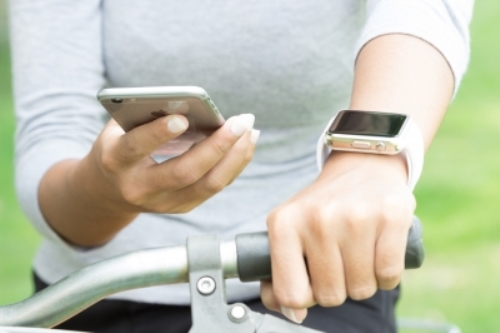Is it the fear of missing out that drives us to spend so much time on social media?

I wonder about this, as I sit watching a group of teenage girls, supposedly hanging out together. Each of them is individually engrossed in something on the screens of their smartphones and there doesn’t seem any point to their little get-together.
Whilst frantically scrolling through their Instagram and Snapchat feeds, these teenagers are forgetting about being in the moment; they’re losing the opportunity to make memories and quite frankly, I find that sad. Is it any wonder that a study conducted by the University of Pittsburgh found a connection between social media use and the increased feelings of loneliness in young adults?
The study, which questioned around 2,800 19-32 year olds, suggests two hours or more social media use per day can double a person’s chances of experiencing social isolation. This includes feelings of envy, fear of missing out (FOMO) and feelings of exclusion when seeing friends out and knowing you haven’t been invited.
Very few people share the boring, stressful or ugly sides of their lives. What you then see is a skewed view, one that is edited/filtered/airbrushed to perfection. This leads others into thinking everyone else’s lives are so much more amazing than theirs. This is certainly true of the younger generation anyway, as they are much more impressionable that way.
Another study by the Manchester Evening News questioned over 10,000 people in the Greater Manchester area about their social media usage and whether they considered themselves to be lonely. Over a third of the 18-35 year olds questioned admitted to feeling lonely, with one in eight saying they felt this way ‘most of the time’.
The use of social media and these feeling I’ve already described are thought to be partly to blame. It’s also thought lifestyle changes, such as becoming a parent, moving to a new area or starting a new job can all lead to social isolation. Then there is the decline of traditional communities, with 28% of people living in the city of Manchester claiming to have never spoken to their neighbours.
Why do we have so many ways to connect with people but are lonelier than ever?
According to Ofcom, 71% of UK adults own a smartphone and this rises to 90% in the 16-24 year age category. We spend, on average, one day a week (25 hours) on our smartphones, yet research by Deloitte suggests 31% of smartphone users make no traditional voice calls in a given week.
In other words, we don’t speak to each other and we don’t interact face-to-face. Instead, we use our smartphones as windows looking into the lives of others. We watch, like, share and comment, but none of this is done in real time. We humans are social beings and we thrive on that face-to-face contact. It’s in our DNA. Why then, are we not doing this so much anymore?
The internet does, of course, have its uses and is a valuable tool in our lives. The Manchester Evening News study found some young people were using social apps as a way of combatting their loneliness. Meetup.com is used by twenty million people worldwide as a way of organising a real-life social group, a lifeline to anyone new to a city and looking to make friends. Then of course, there are dating apps that have opened up new ways of meeting a partner. Others argue that without the internet and the ability to interact with other like-minded individuals, they would be lonelier than ever.
Does social media make you lonelier, or were you lonely in the first place?
What comes out of both these studies is that it is unclear if social media is compounding our loneliness or whether it’s serving to exacerbate feelings that were already there. Either way, it is becoming a recognised problem in young adults and teens and has links to the growing mental health problems in this age group.
Do you think you are addicted to your smartphone? Most of us would agree we spend far too much time on it than we know we should.

I have a slightly different take on this. There are studies which have shown social media helps isolated people feel more connected. And I definitely feel that being overseas.
But I think the issue speaks to far deeper problems in society. I also wonder what the statistics for loneliness were 25 years ago. Were people less lonely then before the internet and long before smart phones and social media?
The only real defining narrative presented to young people is that they are what they own. Status is based on things and friends can be just another commodity.
I guess what I’m trying to say is that there are much deeper issues and smart phones are just the visible manifestation of what happens when society is no longer built around local communities with churches or social clubs which kept people connected. And money and possessions become the things that define us.
Yes, the unanswered question was which came first, the loneliness or the increase in loneliness due to the social isolation. And like you say, many feel that without the connections they’ve made online, they would be much more lonely. It’s the teen years which are so vulnerable and impressionable that we have to watch.
Nikki, brilliant post! So relevant to what many parents ask themselves in these modern times!
I wonder which is the poem by Sugar J you mean – I guess the link is not available anymore, but I’d love to see it.
Thank you for alerting me to this. I hadn’t realised that it was unavailable and I’ve looked for it but can no longer find it. Such a shame.